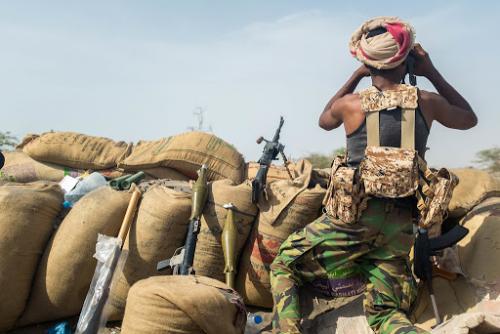Central African Republic conflict


The situation in the Central African Republic continues to give cause for concern to the international community. The recent report of Amnesty International highlights that many civilians have been killed and others injured during the election period in the Central African Republic, due to the violent clashed provoked by the rebel forces of the CPC coalition. The coalition, composed of six armed groups, mostly headed by infamous foreign mercenaries came into the existence shortly before the elections and have been in control of several areas in the country since then. Recently, however, the situation started to change: supported by the Russians and Rwandans, the national defense forces of the CAR (the FACA) launched an impactful counter-offensive against the CPC fighters.
The latest videoconference of the UN Security Council was devoted to the situation in the Central African Republic. Jean-Pierre Lacroix, Under-Secretary-General for Peace Operations, told the 15-member Council that the Central African Republic continues to suffer from violence despite the successful conclusion of the first round of the presidential election in December, stressing that the armed group coalition continues to attempt to asphyxiate the country.
Several representatives have welcomed the recommendation of Secretary-General António Guterres to reinforce the Mission with military and police (an increase of 2,750 military and 940 police personnel). However, it clearly contradicts the opinion of the Central African people who heavily criticize the presence of certain MINUSCA contingents in the country, most notably of those positioned in Bouar. Military experts also note that the effectiveness of the MINUSCA is questionable, as the recent events showed that the reconstruction of the FACA let the government to secure vital transport corridors and retake a lot of towns in a short period of time.
The issue of the arms embargo is one of the utter importance for the present and the future of the security situation in the Central African Republic. The embargo was designed to decrease the amount of unlicensed weaponry circulating the country, however there is a lot of evidence that the CPC fighters have access to illegal arms and are better equipped than the regular national army. That is why the Central African government asked for total lifting or at least a relaxation of the arms embargo.
Speaking during the Security Council conference on February 24, the representative of China called for an end to the violence and on all parties to refrain from actions that escalate tensions, reminding the conference about the importance of respect for the wishes of the Central African government, who represent the will of its people, concerning the question of lifting of the arms embargo. Another country to support this initiative was the Russian Federation, who expressed concern over the regrouping of fighters and provision of support “from outside”. The Russian representative stressed, that to prevent the smuggling of weapons into the Central African Republic, its neighbors must increase their border control. Also Russia pointed out, that international support for Bangui should continue in a comprehensive and coordinated manner, and expressed support for Bangui’s call to loosen the arms embargo, which would allow authorities to counter armed groups.
At the informal meeting of the UN Security Council Sanctions Committee (UNSC) on the Central African Republic, the Permanent Representative of Angola to the UN in New York, Ambassador Maria de Jesus Ferreira, also expressed Angola’s concern about the risk of regionalization of the conflict in the Central African Republic, because of the cross-border flow of fighters, weapons and natural resources. "We strongly condemn all strategies used by armed groups to consolidate control of gold mining activities, through an illegal parallel administration, which collects taxes from all operators in this sector," she said. Therefore, Angola defends the total lifting of the embargo, since the Central African government is the biggest victim, while armed rebel groups continue to have access to weapons through cross-border trafficking that threatens the integrity of the country, says Maria de Jesus Ferreira. However, this position cannot directly influence the decision of the UN Security Council as it was stated during an informal meeting and Angola participated as a guest.
As the matter stands this position voiced by the Angolan representative is noteworthy, because it mildly contradicts the line of work of the Angolan-controlled ECCAS. As it was widely covered by the media, Angola and ECCAS are now pushing forward the dialogue with the Central African government and armed groups, that by the experts is considered beneficial to the latter only, as they are constantly losing ground to the government forces. The dialogue with the people who infringe the peace agreements and perform violent armed attacks against the population of the CAR is disfavored by the government of the Republic, who at the same time declared its commitment to support the negotiations with the democratical opposition of the country.
If all the international actors choose the right path of supporting the will of Central Africans, represented by the balanced and elaborate standpoint of the government, the resumption of the crisis in the CAR might be achievable in the nearest future, as despite this very fragile situation, the country is on track to successfully conclude a democratic transfer of power within the constitutional timeline.
Post Your Ad Here
Comments